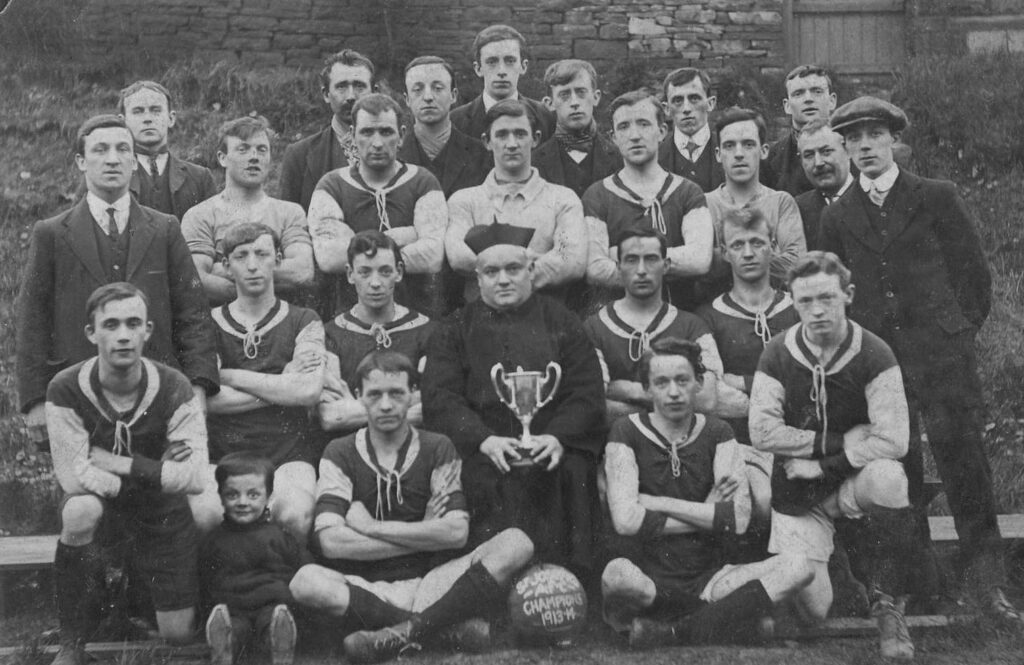Father Gaetano Fracassi, pictured with the 1913-1914 St Joseph’s football team holding the Joshua Craven Hoyle Cup. Served as the parish priest in Stacksteads for nine years, from 1913 until 1922. Afterwards, he took up the role at St Alban’s in Ancoats, Manchester, a neighbourhood often referred to as “Little Italy.” On June 11, 1940, he was taken into custody and placed in an internment camp. It was from this location that he penned a letter to the Bishop of Salford, the Right Reverend Henry Vincent Marshall, dated June 17 June.
A little over a week later, on June 26th, it was conveyed to the Bishop that the internees, including Father Fracassi and six other Italians from the Manchester area, had been relocated to an undisclosed location. Their names surfaced on a list at a neutral consulate, labelled as “missing at sea.” These individuals were all in their advanced years, having resided in the country since their childhood or early youth. Among them, some had sons enlisted in the British Army, and five were proprietors in the ice cream trade.
Despite circulating rumours after the British passenger ship S.S. Arandora Star sank on July 2nd, it wasn’t until January 1941 that official verification was provided confirming Father Fracassi as one of the internees aboard, en route from Liverpool to Canada, who did not survive. The S.S. Arandora Star fell victim to a torpedo attack by U-47 in the Atlantic Ocean while heading to St John’s, Newfoundland. The ship carried 712 Italians, 438 Germans, Jewish refugees, and 374 British seamen and soldiers, with more than half tragically losing their lives in the incident.
A Requiem Mass took place at St. Alban’s on March 20, where Father Fracassi was remembered with dignity and respect. The Bishop emphasized that Christian Charity transcends national boundaries, extending even to Catholic enemies and their sons who might fall into their hands. Father Gaetano Fracassi’s unwavering dedication to his community and his tragic fate during World War II remains a poignant part of history. His legacy lives on in the hearts of those he served.
Footnote: This was the first time the Bacup Amateur League had played for the Joshua Craven Hoyle Cup.
